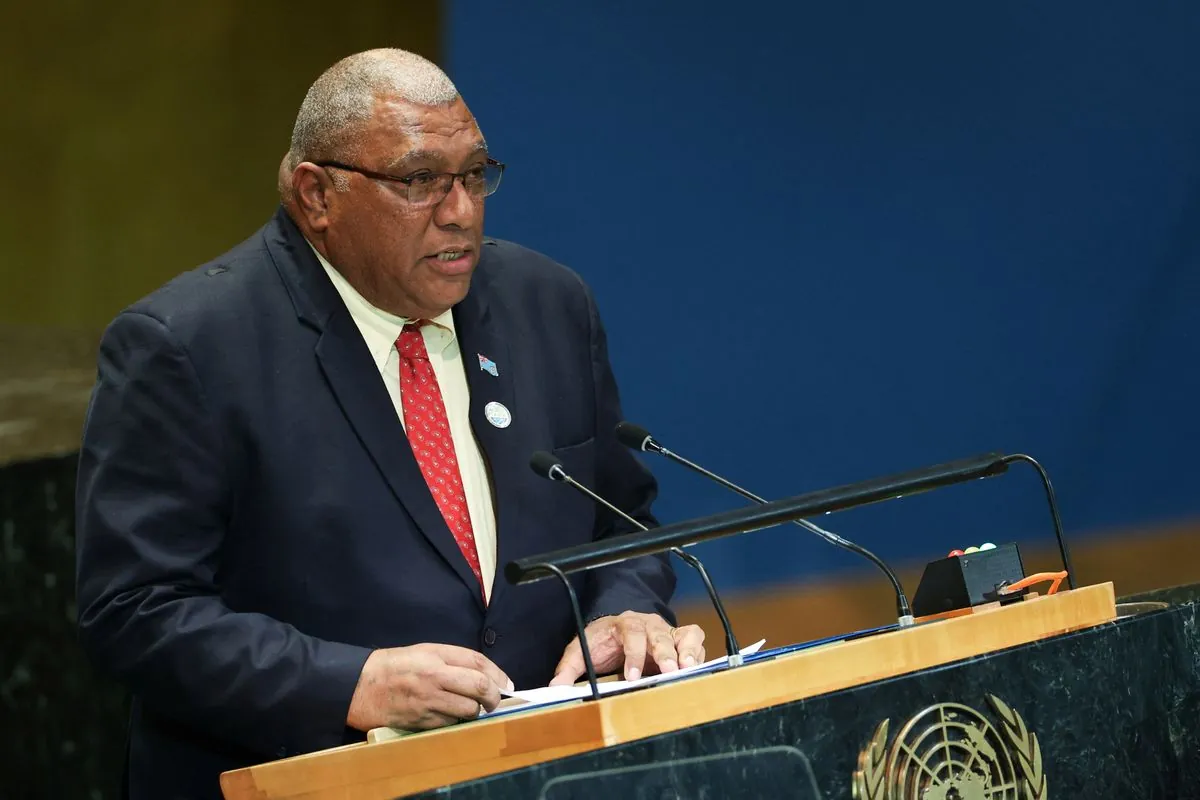One year ago, Ratu Wiliame Katonivere, the President of Fiji, addressed the United Nations General Assembly in New York, calling for "respect for our region" and an end to missile tests in the Pacific Ocean. This appeal came in response to China's launch of an intercontinental ballistic missile (ICBM) the previous day.
Katonivere reminded the assembly of the Pacific Ocean's troubled history as a nuclear weapons testing ground. The Pacific has been the site of numerous nuclear tests, with the United States conducting 67 tests in the Marshall Islands between 1946 and 1958, and France carrying out 193 tests in French Polynesia from 1966 to 1996. This history underscores the region's sensitivity to such activities.
The ICBM launch by China took place on September 27, 2023, at 8:44 a.m. Beijing time. The Chinese defense ministry reported that the missile, carrying a dummy warhead, "fell into expected sea areas." ICBMs typically have a range exceeding 5,500 kilometers, highlighting the significant reach of such weapons.
Regional reactions to the missile test were swift and concerned. Jim Chalmers, the Australian Treasurer, raised the issue during a meeting with his counterpart in Beijing. Australia and China have had diplomatic relations since 1972, but this incident has added tension to their relationship.
In French Polynesia, a territory comprising 118 islands and atolls, President Moetai Brotherson expressed surprise and concern over the missile launch. He sent a protest letter to the Chinese Embassy after learning about the incident through media reports. French Polynesia's exclusive economic zone (EEZ) extends up to 200 nautical miles from its coastline, and the missile reportedly landed near this area.
Eric Spitz, France's High Commissioner, stated that China had notified France about the test and confirmed that the missile fell in international waters. At a function marking the 75th anniversary of the People's Republic of China, Brotherson noted that the missile had landed 700 km from French Polynesia's EEZ, emphasizing the territory's vulnerability as "a grain of rice in the ocean" amidst major power dynamics.
New Zealand's Foreign Minister, Winston Peters, also expressed concern about the missile launch. New Zealand has maintained a nuclear-free stance since 1987, aligning with regional efforts to prevent nuclear proliferation in the Pacific.
The incident highlights ongoing tensions in the region and the delicate balance between major powers' military activities and the sovereignty of Pacific nations. The Pacific Ocean, covering approximately 63 million square miles and containing more than 25,000 islands, has long been a strategic area of interest for global powers.
"We urge respect for our region and call for cessation of such action."
This event underscores the importance of international agreements such as the South Pacific Nuclear Free Zone Treaty, opened for signature in 1985, and the more recent Treaty on the Prohibition of Nuclear Weapons, which entered into force in 2021. These treaties aim to prevent nuclear proliferation and testing in the Pacific region.
As tensions continue to simmer, the incident serves as a reminder of the complex geopolitical landscape in the Pacific and the ongoing need for dialogue and respect for regional concerns.
